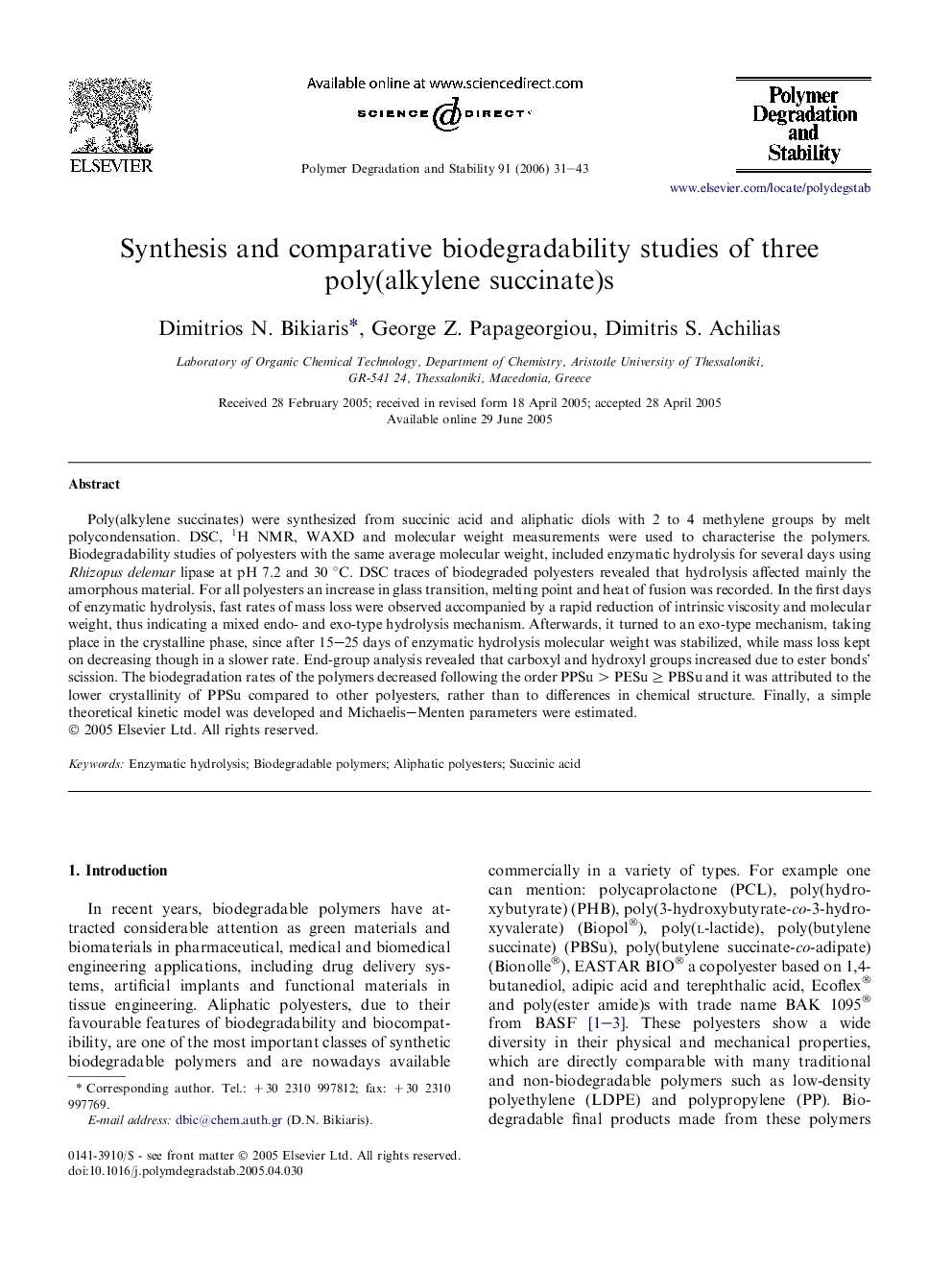| Article ID | Journal | Published Year | Pages | File Type |
|---|---|---|---|---|
| 5205115 | Polymer Degradation and Stability | 2006 | 13 Pages |
Abstract
Poly(alkylene succinates) were synthesized from succinic acid and aliphatic diols with 2 to 4 methylene groups by melt polycondensation. DSC, 1H NMR, WAXD and molecular weight measurements were used to characterise the polymers. Biodegradability studies of polyesters with the same average molecular weight, included enzymatic hydrolysis for several days using Rhizopus delemar lipase at pH 7.2 and 30 °C. DSC traces of biodegraded polyesters revealed that hydrolysis affected mainly the amorphous material. For all polyesters an increase in glass transition, melting point and heat of fusion was recorded. In the first days of enzymatic hydrolysis, fast rates of mass loss were observed accompanied by a rapid reduction of intrinsic viscosity and molecular weight, thus indicating a mixed endo- and exo-type hydrolysis mechanism. Afterwards, it turned to an exo-type mechanism, taking place in the crystalline phase, since after 15-25 days of enzymatic hydrolysis molecular weight was stabilized, while mass loss kept on decreasing though in a slower rate. End-group analysis revealed that carboxyl and hydroxyl groups increased due to ester bonds' scission. The biodegradation rates of the polymers decreased following the order PPSu > PESu â¥Â PBSu and it was attributed to the lower crystallinity of PPSu compared to other polyesters, rather than to differences in chemical structure. Finally, a simple theoretical kinetic model was developed and Michaelis-Menten parameters were estimated.
Related Topics
Physical Sciences and Engineering
Chemistry
Organic Chemistry
Authors
Dimitrios N. Bikiaris, George Z. Papageorgiou, Dimitris S. Achilias,
